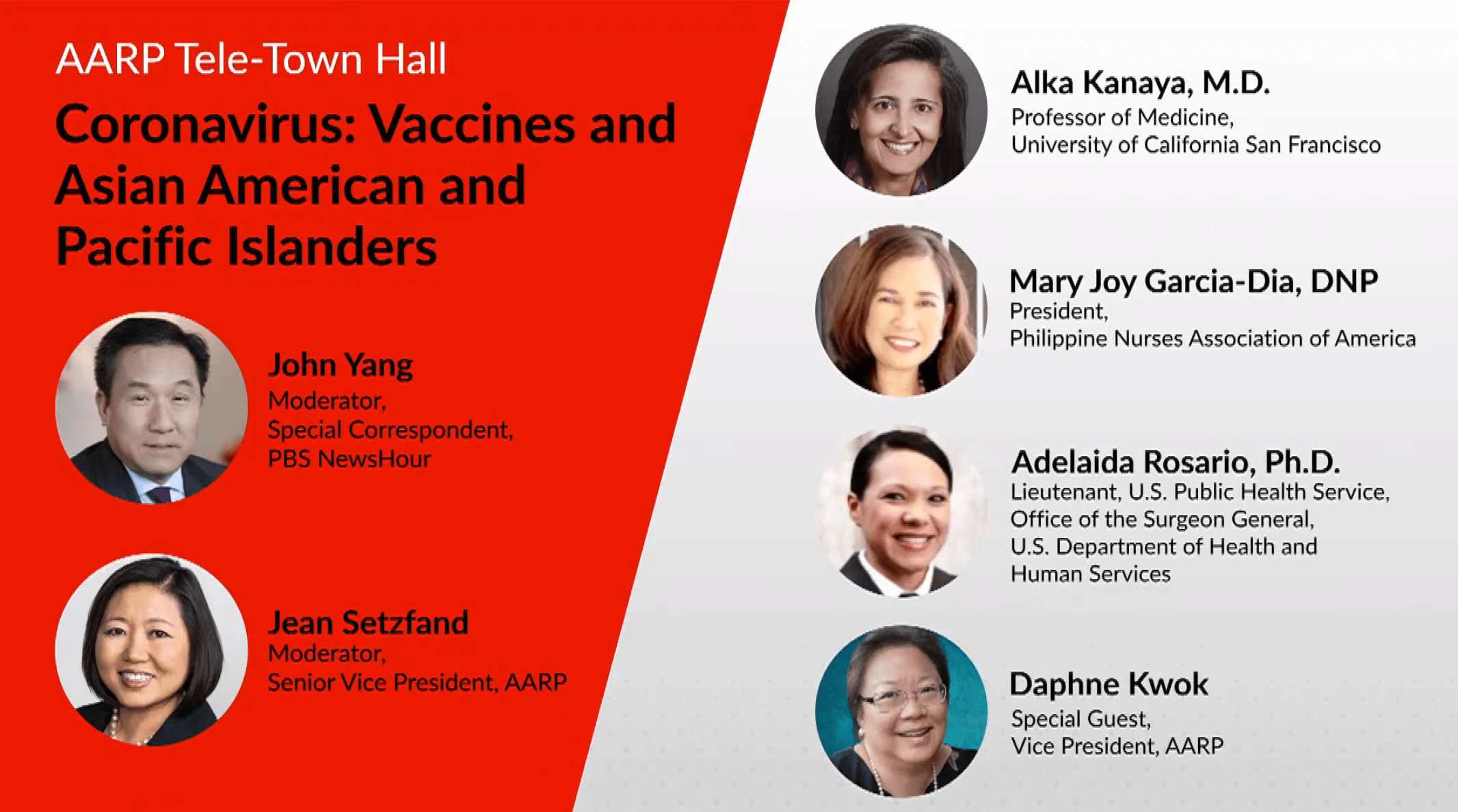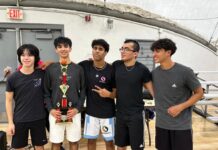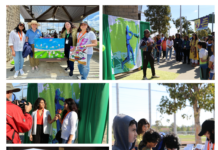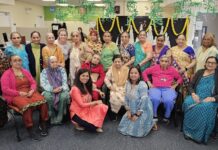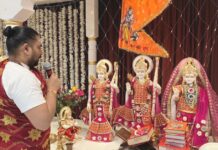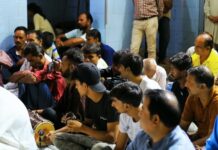India Post News Service
AARP hosted a national coronavirus Tele-Town Hall focused on “Coronavirus, Vaccines, and Asian Americans and Pacific Islanders” on April 22 at 7:00 p.m. (EDT). The live streamed event involved a panel discussion among health experts who also answered live questions from callers all over the country about: how to stay safe and protected from the coronavirus and prevent the further spread, virus variants and vaccines, vaccine distribution, and ways to identify misinformation, fraud and scams.
Guest speakers included Lieutenant Adelaida M. Rosario of the U.S. Department of Health & Human Services; Dr. Alka Kanaya, Professor of Medicine at the University of California, San Francisco; Dr. Mary Joy Garcia-Dia, President of the Philippine Nurses Association of America (PNAA); and Daphne Kwok, AARP Vice President of Diversity, Equity and Inclusion, Asian American and Pacific Islander Audience Strategy. The panel was moderated by John Yang, National Correspondent for the PBS NewsHour.
COVID-19 impact on the community
The panel started with an acknowledgement of the Asian American, Native Hawaiian and Pacific Islander (AANHPI)community’s unique challenges faced during the pandemic. The speakers agreed that AANHPI’s have had issues with obtaining information about the pandemic and the availability of the vaccines due to languagebarriers, a low level of familiarity with computer technology, misinformation, distrust in government, and misunderstanding of the vaccines or the science behind the vaccines. The speakers also recognized that there are different solutions and approaches to these challenges.
“The AANHPI community is extremely diverse and therefore, there isn’t a one-size-fits-all approach with communications,” said Dr. Rosario.
Many of the speakers shared that there is a benefit for the community when materials are produced in their languages and when those materials are shared through trusted leaders of community-based organizations or trusted staff members at local health centers to share information.
Dr. Rosario commented, “HHS has been working on a number of print materials and virtual materials in the relevant languages so we can reach the community in their native tongue. HHS is also moving into a second sphere of subgroups which are also American Samoans and some of the smaller islands.”
A barrier unique to the Asian American community is the recent increase in the number of anti-Asian hate crimes since March 2020.
“In addition to this pandemic, there’s this heightened negative attention right now, focused on the Asian American community because of all the stereotypes and it’s terribly unfortunate,” Dr. Rosario said. “It becomes a ‘double pandemic’ essentially for all of our older Asian American community members because they’re dealing with all of this awful discrimination in addition to, layered with, this health crisis. There’s something to be said about disproportionate mental health impact that our community is dealing with.”
On behalf of AARP, Kwok denounced the hate crimes: “AARP strongly condemns all racially motivated violence and harassment, and AARP stands with the Asian American community. Racism is a public health issue.” She added that the assaults had been “causing fear, especially for our older members, and the fear is keeping them from making their medical appointments and getting their vaccine. Fortunately, I know there are volunteers helping out at the local level, like accompanying elders to their appointments.”
Kwok reaffirmed AARP’s commitment in supportingAAPI elders and their families through the production of translated materials. The AARP state offices are also engaging with the AAPI community at the local level. There is an upcoming #StopAsianHate forum taking place in May as well. “It’s important to shatter the Model Minority Myth as well as the Perpetual Foreigner image,” said Kwok. “And it’s important to tell Asian American and Pacific Islander history: the contributions we’ve been making in the United States dating back to the Civil War.”
COVID-19 has also negatively impacted healthcare professionals and frontline workers in different ways. A PNAA survey helped Dr. Garcia-Dia identify “the challenges that our nurses are experiencing and how we can unpack these feelings of depression, the morale injury that they feel because they survived [a COVID-19 infection],and the frustration that they feel because the pandemic is not going away.” PNAA started the “Resilience Program” to help their nurses recover socially and emotionally, for the long haul. PNAA also sent a survey through the Justly Project to find out how to make their nurses feel more appreciated.
“A simple thank you will make us feel better,” was the response that the organization discovered, according to Dr. Garcia-Dia. “We will be celebrating Nurse’s Week… for the whole month of May. And we hope the audience will express their ‘thank you’ to all our nurses or healthcare and essential workers because it will go a long way in reaffirming the reason why they chose to be in the healthcare profession: to care for our patients and save lives. And we know we can only do our job if everyone will do their share in helping flatten the curve. So taking care of yourself, and getting your vaccine will be a huge help.”
Clinical trials
According to the panel, AANHPIs were part of the vaccine clinical trials. In fact, Yang personally sought out and applied for the clinical trials even though he has underlying health conditions. Yang said, “I sought out an opportunity to apply for a clinical trial, and I ended up in the Moderna clinical trial.”
On this note, Dr. Kanaya shared the importance of having People of Color and AANHPIs involved in these clinical trials as well as for clinical trials for all medications and drugs.
“We need to have better representation of AANHPI groups in all types of studies, whether it’s vaccine studies or Alzheimer’s Disease studies. We need to change the narrative,” said Dr. Kanaya. “Especially in drug trials and vaccine trials, it’s really important to have representation from diverse groups and communities because there may be certain biological differences in how we metabolize medications or how our bodies develop immune responses to vaccines that cannot be seen unless we have adequate numbers of participants in these trials.”
Kanaya shared that at least 4-5% of Asian Americans were in the Moderna clinical trials in the United States, and in the Pfizer clinical trials that took place all around the world. While results showed that differences in efficacy of the vaccine or in side effects were not found for Asian Americans versus other groups, she warned that the results are only based on a small sample of 1,400-1,600 people in the trials.
Still, Dr. Kanaya said, “This at least gives me some comfort knowing that there was some representation in these studies. But we can do better.”
Frauds and scams
Since the pandemic, there has been an alarming increase in coronavirus and vaccine frauds and scams. As a public health professional who is vigilant of these issues for AANHPIs, Dr. Rosario noted that each state has a health department website with updated information on authorized vaccine providers. The FDA’s website also shares the latest with vaccine emergency authorizations. The CDC also shares a list of trusted medical professionals should anyone need to verify information. Rosario encouraged everyone to be vigilant and to turn to local trusted resources to seek help to vet or verify suspicious claims or potential fraud or a scam.
Final takeaways
The bottom line for all the panelists? It’s important to get vaccinated.
Dr. Rosario said, “The benefits far outweigh the risks. Return to what was your norm with confidence that you won’t end up hospitalized, death won’t be a looming threat, and you can be with your loved ones. It’s a significant step back to the life that we knew.”
Dr. Kanaya said: “Get vaccinated. Get people around you to get vaccinated. Anyone you get in contact with, help them to get vaccinated. We need everyone to pitch in here. It’s important to use your own influence with people you know around you because we’re trying to get the world vaccinated. And one more person is one more step closer to getting our life back to normal.”
Dr. Garcia-Dia said: “Have an honest conversation and have a listening session with the people in your community that you could trust and share experiences with. This is really our shot. We can stop the pandemic on its tracks. Let us be part of this solution and make this an opportunity to help prevent the spread of COVID-19. Getting the COVID-19 vaccine protects you, your family and our community.”
For more information about the vaccines, where you can register for one, and how AARP continues to protect older Americans 50+ and their families during the pandemic, please visit aarp.org/coronavirus.
About AARP: AARP is the nation’s largest nonprofit, nonpartisan organization dedicated to empowering people 50 and older to choose how they live as they age. With a nationwide presence and nearly 38 million members, AARP strengthens communities and advocates for what matters most to families: health security, financial stability and personal fulfillment. AARP also produces the nation’s largest circulation publications: AARP The Magazine and AARP Bulletin. To learn more, visit www.aarp.org or follow @AARP and @AARPadvocates on social media.Follow us @AARPAAPI for more news and videos.

